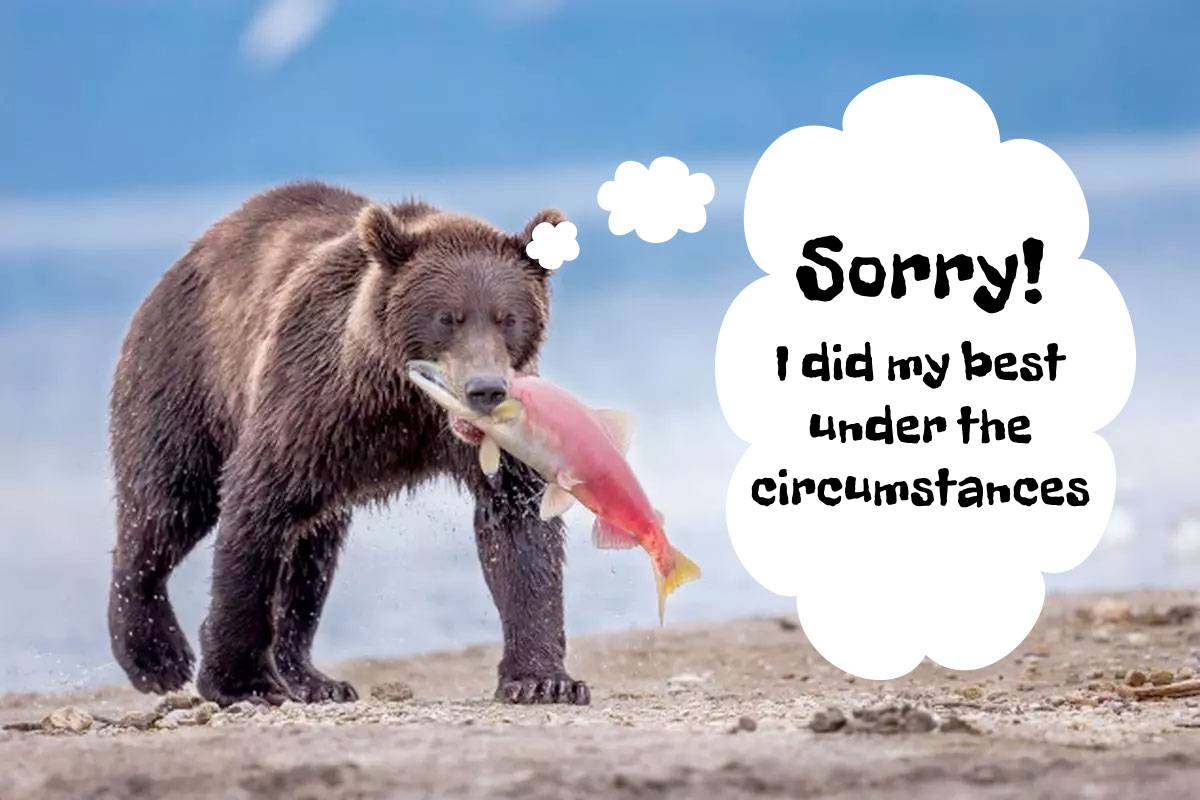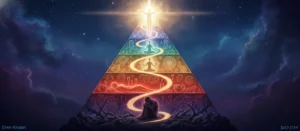Yom Kippur has arrived once again, and once again I don’t have anything better to do than write about the topic that occupies people’s minds on Yom Kippur—Forgiveness.
Our consciousness changes constantly. In some cases, we find ourselves identified with a fearful, narrow-minded, egoic state of mind—taking things personally, feeling hurt and worried. In other cases, we perceive life from a broader viewpoint, and then we feel at ease, mature, hopeful, and nothing seems overly dramatic. Expanding our awareness brings us closer to the truth, and to a more peaceful state of mind. "The truth will set you free".
What Is Forgiveness?
For me, forgiveness is the shift from that narrow perspective into a broader viewpoint, a more spiritual and holistic one, through which we see ourselves connected to everyone and everything. When this shift happens, things lose their dramatic sting.
A new understanding emerges about people’s deeper motivations, which usually resemble our own—wanting to feel like we belong, to be appreciated. We also understand that people aren’t doing things to us—whatever they’re doing they do it for themselves, under the circumstances, that include their state of mind and the situation at hand.
When this understanding arises, our attention turns inward, and we realize that we too are always doing the best we can under the circumstances.
At first, every case seems different, and we feel the need to examine each one individually and review how events played out—Maybe this time he did it because he just doesn't care about me? Maybe she laughed because she thinks I look silly? Eventually we discover that once again they were just doing their best under the circumstances, both inner and outer, in their striving to feel safe and loved.
So when forgiveness occurs, what actually happens is connecting to a broader and deeper perspective that feels like sobering-up, then comes acceptance, and then—peace. When that happens, we understand that there was never really anything to forgive. Ever.
What Stands Behind the Act of Asking for Forgiveness?
In my eyes, asking for forgiveness means trying to soothe someone who's in their narrow perspective, telling them that reality is not what it seems.
It might sound something like this:
It might look as though I did something unpleasant to you out of carelessness, but that’s not true—I care and I didn't mean to hurt you.
In other cases, it might sound like this:
I did it on purpose but not with proper awareness (rather, from that narrow, egoic state of mind), and then I realized that it was the wrong thing to do. I want you to know I don’t want to hurt you.
And the person who forgives essentially says:
I see that you did simply what you could, given the overall circumstances at that moment.
If this process doesn’t occur—that is, if the shift in perspective and the understanding that reality could not have been otherwise does not happen—then forgiveness hasn’t happened. Forgiveness is when we understand, or more precisely, when we know, that things could not have been different.
Some of you might now be thinking that this removes responsibility from the shoulders of criminals, letting them continue committing crimes and just saying they did their best. This thought arises from a narrow perspective assuming that a person can do something harmful from a place of awareness and soul-connection, which is a false assumption.
A person can consciously do something harmful to another, but no one can consciously do something harmful to themselves. From a broad, soulful perspective, we know we are all one, and harming another is always harming ourselves. Therefore, wrongdoing can only occur from that narrow, egoic perspective.
If my explanation about not removing responsibility from criminals doesn’t satisfy you—just as it didn’t satisfy Gershona (a pseudonym), who decided to message me privately for reassurance—then read the correspondence we had.
You’ll find a deeper explanation there, including insights from my personal journey, where something happened in my life that shook me to the core and I had to find a way to forgive and come to terms—or risk losing it completely.
"And were you able to forgive this?"
Gershona
Hey,
Sorry for the intrusion, but regarding the forgiveness post:
Some might think that this removes responsibility from criminals, letting them continue to offend and claim it’s their best. This feels like letting people who do truly terrible things off the hook just because they weren’t connected or aware.
Don’t you think there are some things that simply don’t deserve forgiveness?
Oren
Hey Gershona, these are two separate questions, so I’ll address them individually.
Regarding responsibility:
I’ll give an example that’s easy to relate to, and I hope you’ll understand how it’s true for other cases as well.Let’s say you’re a mom at home all day with your son. He’s the most precious person in your world, but he’s full of energy, makes noise and a mess, and all you want is one moment of peace.
You keep your cool because you know he’s just a child.
After cooking, washing dishes, and tidying up after him, you finally sit down to rest. Three seconds later—boom, crash! You rush to the kitchen and find the floor covered in broken glass, plant-based milk, and cereal. Your son stands there barefoot.
He looks at you with wide eyes. You shout, letting out all the day’s frustration. He cries bitterly, doesn’t want you near, but you must pick him up before he steps on glass. Chaos.
After cleaning up, you calm down. You “return to yourself” and realize he just wanted to get some food and it slipped. He’s still hungry, and now you’ve yelled at him. He’s just a child.
You see that you’ve hurt the one most precious to you and feel guilty. You’ve already forgiven him because you now see the truth, but now you blame yourself.
A psychologist guides you through the situation, showing you that you did your best given the circumstances. Realizing that, you no longer feel guilty—you’ve forgiven yourself. At the same time, you understand that staying home alone with him all day doesn’t work, and you promise yourself to arrange help next time.
The cases where we don’t forgive are those where we haven’t yet seen how the person who did “wrong” was doing their best from their place. This also applies to severe violence, though those cases are more emotionally overwhelming and complex, so the path to forgiveness—or understanding the broader truth—may be longer. Still, the truth in the end is always the same.
About whether some things don’t deserve forgiveness:
We don’t “give” forgiveness. There’s an illusion that we choose when to forgive and when not to, but it doesn’t really work like that. Try deciding to forgive someone who deeply hurt you—you’ll find you simply can’t force it.Forgiveness happens when we know the truth: that the person did their best given where they were. When we know this, we free ourselves. If the other person cares about our forgiveness, then forgiving also frees them. But forgiveness is always, first and foremost, for ourselves.
Gershona
I understand your line of thought… I just can’t grasp how to apply this to severe harm.
There are things that simply don’t deserve forgiveness.
Saying “the person did their best” is infuriating.
I don’t know, I can’t understand it.
I tried, I really did.
Oren
Right, in the moment, when overwhelmed with emotion—there’s no such possibility.
It requires being in a certain place in life. If I hadn’t actively connected to that place through healthy nutrition, focusing on the positive, and most importantly meditation—I wouldn’t have stood a chance.
Gershona
Even after years, it’s sometimes not possible…
Oren
True. The question is what do we do then? Many people simply don’t know.
I was there too, for many years.
Gershona
The example with the child is lovely, really. But it’s not truly comparable to serious offenses.
Have you actually managed to think like this about severe harm done to you?
Oren
Yes. I experienced such harm, and I knew that if I couldn’t forgive, I would either die or go insane.
That’s how I discovered how to forgive.
Gershona
How did you get there?
I can tell myself all day that everyone’s doing their best, and so on…
But truly believing this applies to severe cases is hard.
Oren
When my daughter was one year old, her mother took her abroad—to a Muslim country I can’t enter. She was supposed to return shortly, but we broke up and she stayed there. I didn’t see my daughter for two and a half years.
Gershona
Wow… that’s terrible. I’m sorry.
Oren
Thank you.
Gershona
And were you able to forgive this?
(I’m starting to believe in this approach…)
Oren
I did a lot of therapy, which helped a bit, but the real change came when I had to choose—either I fight her mother and make our lives (especially my daughter’s) miserable, or I accept the situation, allowing my daughter to grow up with parents who are at peace.
Facing that decision, I asked myself why she did it. I put myself in her shoes and represented her as I believed she would represent herself.
After doing that, I forgave her, but I still hadn’t forgiven myself. I allowed her to fly and get our daughter a foreign passport.
What I did next required genuinely wanting to see the truth.
I believe that everything happening in our lives is our deepest, truest desire. That means, deep down, I wanted this to happen (sounds crazy, right?). So I asked, “What’s good about this happening?”—and the answer came.
After a violent, unhealthy relationship, I was shattered. I had little money, lots of worries, and if I had stayed with my ex, it would have ended badly. Also, I wasn’t capable of properly caring for my daughter at that time.
I saw how, on a cosmic, metaphysical level, we arranged things so I could undergo healing, and her mother, in a cheaper country full of therapists, got help for our daughter and herself. It was the only scenario I could imagine that let us remain at a safe distance, resting and getting the treatment we needed, and that’s what happened without my conscious choosing.
The price was that my daughter wasn’t with me. That’s very painful, but from where we were, I really don’t see how it could have happened otherwise so that we could recover.
So forgive everyone and forgive yourselves, because there’s nothing to forgive anyway. We are all doing what we can from where we are.



